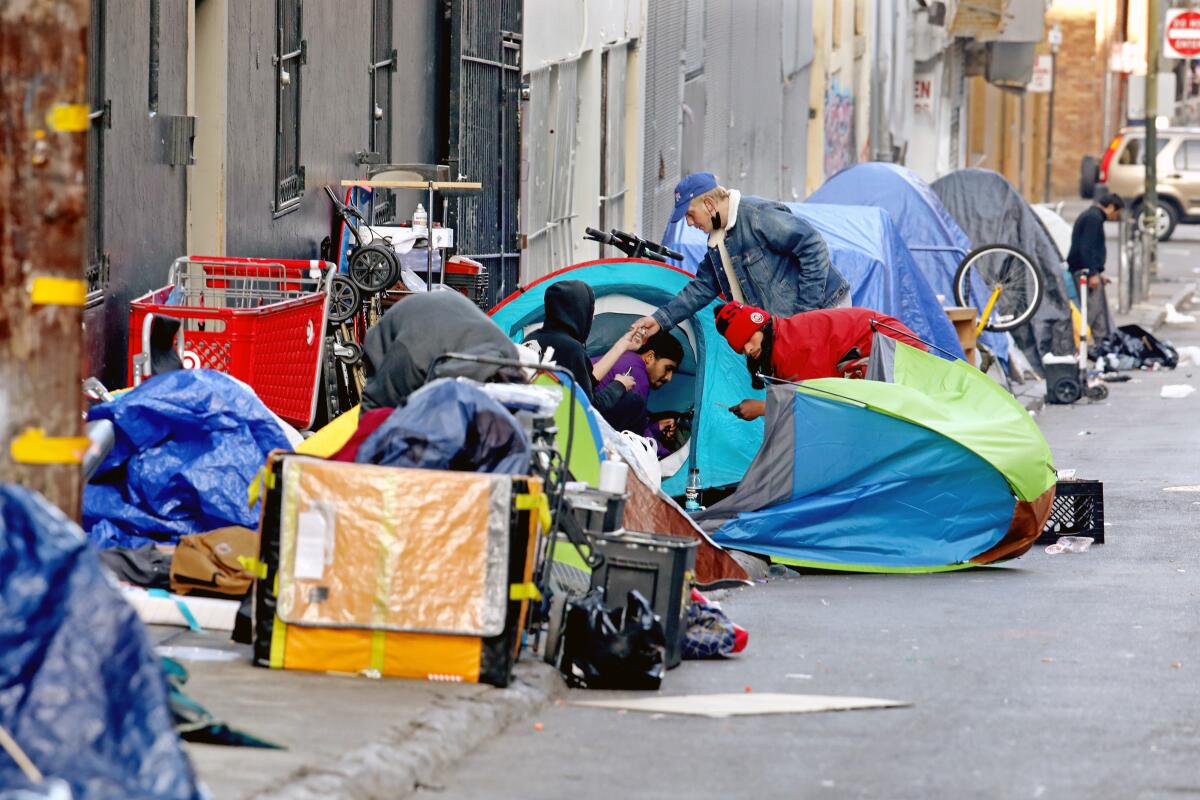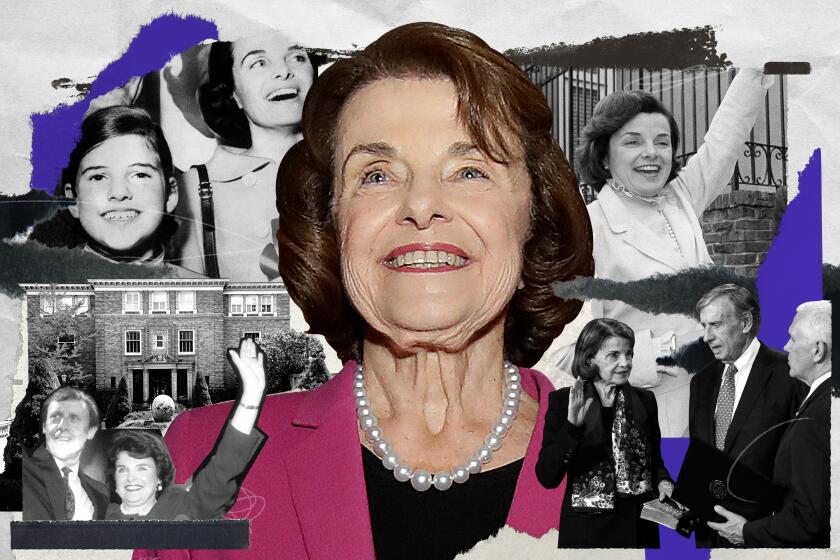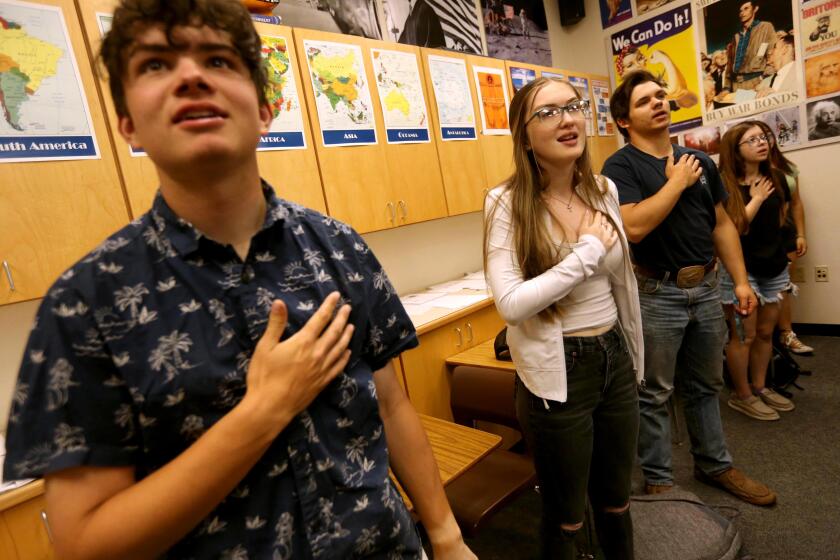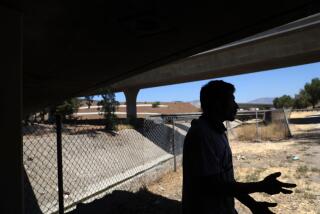California leaders, beleaguered by homelessness crisis, want more power to clear camps

A tense debate across the American West over whether homeless people should be allowed to sleep in public has created some strange bedfellows in California.
In recent days, some of the state’s most prominent liberal leaders have pushed back against a set of court rulings that have restricted local authorities from clearing streets in certain situations, such as when people are living outdoors in cities without shelter beds to offer.
Gov. Gavin Newsom, a prominent Democrat on the national stage, has gone so far as to ask the conservative U.S. Supreme Court to weigh in, while San Francisco Mayor London Breed — also a Democrat — has said her city will relaunch efforts to clear encampments after securing a “clarification” on the law from a lower appellate court.
Both Newsom and Breed have split from many on their party’s progressive left and the liberal judges behind the rulings, siding instead with conservative jurists and constituents who are fed up with the proliferation of encampments.
“While I agree with the basic principle that a city shouldn’t criminalize homeless individuals for sleeping outside when they have nowhere else to go within that city’s boundaries, courts continue to reach well beyond that narrow limit to block any number of reasonable efforts to protect homeless individuals and the broader public from the harms of uncontrolled encampments,” Newsom said in a statement last week.
Explaining the state’s decision to join an ongoing legal challenge to one recent decision, Newsom said it is “time for the courts to stop these confusing, impractical and costly rulings that only serve to worsen this humanitarian crisis.”
California legislators vote to ban laws that force landlords to evict tenants based on criminal histories. Such policies can disproportionately affect Black and Latino renters.
The two cases in question are distinct but have significant overlap.
The first is out of Grants Pass, Ore., where the U.S. 9th Circuit Court of Appeals last September overturned a set of local ordinances that barred homeless people from sleeping in certain public areas when there were no shelter beds available.
The decision reiterated a ruling from 2018, when the 9th Circuit found that the 8th Amendment’s ban on cruel and unusual punishment “prohibits the imposition of criminal penalties for sitting, sleeping, or lying outside on public property for homeless individuals who cannot obtain shelter.”
After the appeals court refused to rehear the Grants Pass case in July, conservative judges lambasted their liberal colleagues for ignoring “the defining public health and safety crisis in the western United States,” saying the rulings would allow the deterioration of public spaces and safety, especially in Los Angeles, San Francisco and other major cities struggling with homelessness.
On Friday, Newsom — who often spars with leading Republicans as a surrogate for President Biden — intervened in the case specifically to call on the Supreme Court to take it up on appeal.
Newsom used similar language as the dissenting conservative 9th Circuit judges, calling homelessness “one of our nation’s most vexing problems,” and blasting the Grants Pass ruling as too restrictive on local jurisdictions.
The governor said he agreed with the separate 2018 ruling protecting homeless people with nowhere else to go, but said the Grants Pass ruling had done little to “disabuse” misinterpretations of that standard. He argued that it further undermined public safety by creating ambiguities around improvised structures, cooking stoves and the sort of sleeping arrangements homeless people are entitled to have on the street.
Newsom wrote that “state and local leaders need the flexibility to craft policies that balance competing interests, particularly when faced with problems as complex as the crisis of homelessness afflicting many cities today,” and that the courts “are not well-suited to micromanage such nuanced policy issues based on ill-defined rules.”
He called on the Supreme Court to take up the case in order to “clarify the scope and limits of the Eight Amendment rights” of homeless people that the appellate court had cited.
Newsom also criticized another case out of San Francisco, where a lower court issued an injunction blocking enforcement of city ordinances that allow for the removal of homeless people and encampments from public property.
Throughout her long career, California’s Sen. Dianne Feinstein had maintained a polished public image. Now her personal affairs have come flooding into public view.
The ruling was based on a finding that San Francisco did not have enough shelter beds to house all of the homeless people in the city, and that those on the street were therefore “involuntarily homeless” with nowhere else to go.
San Francisco has since challenged the injunction at the 9th Circuit, where the case was argued last month and remains pending.
Breed on Monday said the city would resume clearing encampments, thanks to a “clarification” from the court on what it means to be “involuntarily homeless.”
The 9th Circuit panel overseeing the case — one Trump appointee and two Biden appointees — denied the city’s motion to modify the injunction, but noted that the parties in the case “agree that a person is not involuntarily homeless if they have declined a specific offer of available shelter or otherwise have access to such shelter or the means to obtain it.”
Breed took that as a pass to begin clearing encampments again so long as the people in them are offered shelter elsewhere — even if they refuse it.
“Our commitment is clear. We will: Work to bring people indoors. Continue to offer shelter and house people. Enforce our laws when these offers are refused,” Breed wrote on X, formerly Twitter. “People who have been offered available shelter should not be allowed to remain out camping on our streets.”
Both Newsom and Breed couched their positions as compassionate ones, including for the homeless people they wish to displace. No one should be left to live on the street, they said.
However, critics condemned their actions as cruel and misinformed. They argue that the true scope of the underlying rulings in both the Grants Pass and San Francisco cases is more narrow than what Newsom and Breed contend.
“Instead of seeking to punish people simply because they can not afford the limited housing in California, the governor, and elected officials at all levels should focus their attention on policy solutions such as building more affordable housing, providing subsidies to those who are at risk of losing their housing, and investing in holistic services,” the Lawyers’ Committee for Civil Rights of the San Francisco Bay Area, which is representing the plaintiffs in the case, said in a statement.
“Misstating the scope of court decisions and scapegoating unhoused people will allow for further criminalization of people who have nowhere to go, and is not the answer,” the group said.
In San Francisco, the debate has become deeply embittered, with each side accusing the other of acting in bad faith.
Last month, the Coalition on Homelessness wrote on X that it had filed the lawsuit against the city because the city was improperly discarding homeless people’s property and “citing and arresting people who are involuntarily homeless.”
Childhood trauma levels are high and college rates are low in rural California. What’s that mean for a high achiever?
In an interview with The Times on Wednesday, Jennifer Friedenbach, the group’s executive director, called Newsom’s and Breed’s stances on clearing encampments “unfortunate.”
“Citing and arresting people who don’t have any choice in being homeless is a huge waste of resources and exacerbates homelessness, and both Newsom and Breed seem to be advocating for punishing people because they can’t afford rent,” Friedenbach said.
In her comments on X this week, Breed said the city was working to ensure that city workers “understand what has changed” in the litigation before sending them out on the streets, in part because those suing the city “will still be out interfering with their work.”
“These activists are the same people who hand out tents to keep people on the street instead of working to bring them indoors, as we are trying to do,” Breed wrote. “They are instructing and encouraging people to refuse shelter — to remain on the street instead of going indoors.”
Breed claimed San Francisco has helped 10,000 people find housing since 2018 and has one of the largest per capita supplies of permanent supportive housing in the country.
Friedenbach said her group’s members are simply “monitoring that people’s constitutional rights are being protected” when they are out at encampments.
She said more people are being sheltered since her group’s lawsuit was filed, which was ultimately the goal.
More to Read
Sign up for Essential California
The most important California stories and recommendations in your inbox every morning.
You may occasionally receive promotional content from the Los Angeles Times.














